Why Your Vision Gets Worse After 40 (And What You Can Do About It)

If you’ve started to notice that reading menus, phone screens, or other close-up text is more challenging than it used to be, you are not alone. Many adults over the age of 40 begin to experience age-related changes in their vision. These changes may include blurred vision, reduced night vision, and difficulty maintaining normal reading distance when working with reading materials or other close-up tasks.
While some of these issues are considered a normal change in adult vision, others may signal eye and vision problems that require medical attention. By understanding the causes, risk factors, and treatment options, you can take steps to maintain good vision and protect your eye health for years to come.
As Dr. Brendan Cronin, an Ophthalmologist, often emphasizes, early awareness and regular eye exams are essential. Let’s explore why vision declines after 40, the most common conditions behind these changes, and what you can do to keep your eyes healthy.
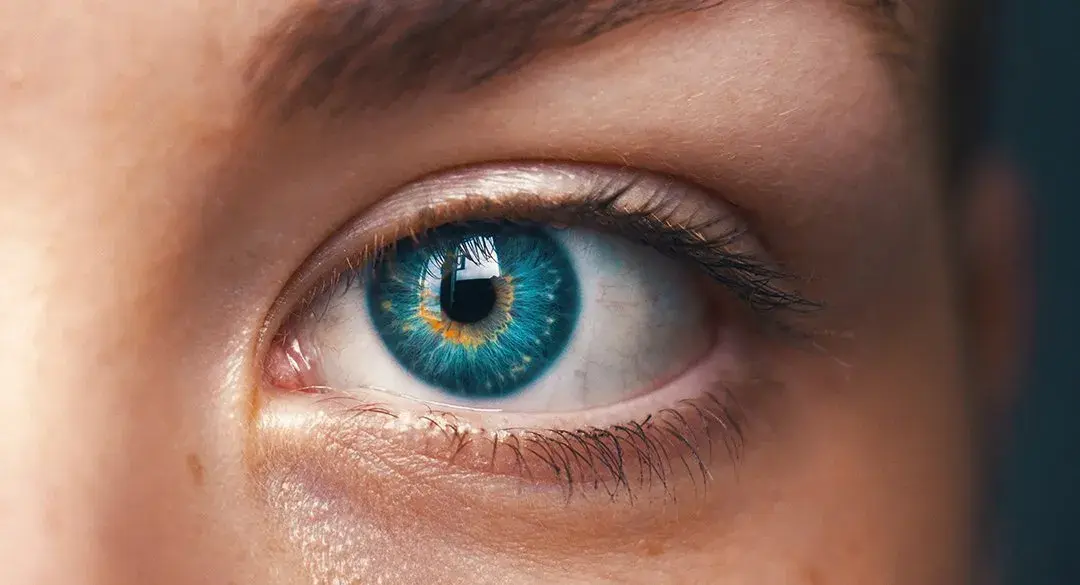
Why Does Vision Deteriorate After 40?
Around the age of 40, most people start to notice early signs of visual decline. These changes occur gradually, often beginning with blurry close-up vision when reading or difficulty focusing on near objects. The primary culprit is presbyopia, but other age-related eye conditions, such as cataracts, glaucoma, or macular degeneration, may also contribute to the issue.
Aging affects the eye’s lens, optic nerve, and tear production, which together influence both near vision and distance vision. Genetics, family history, medical conditions such as high blood pressure or diabetes, and lifestyle habits further increase the risk factors.
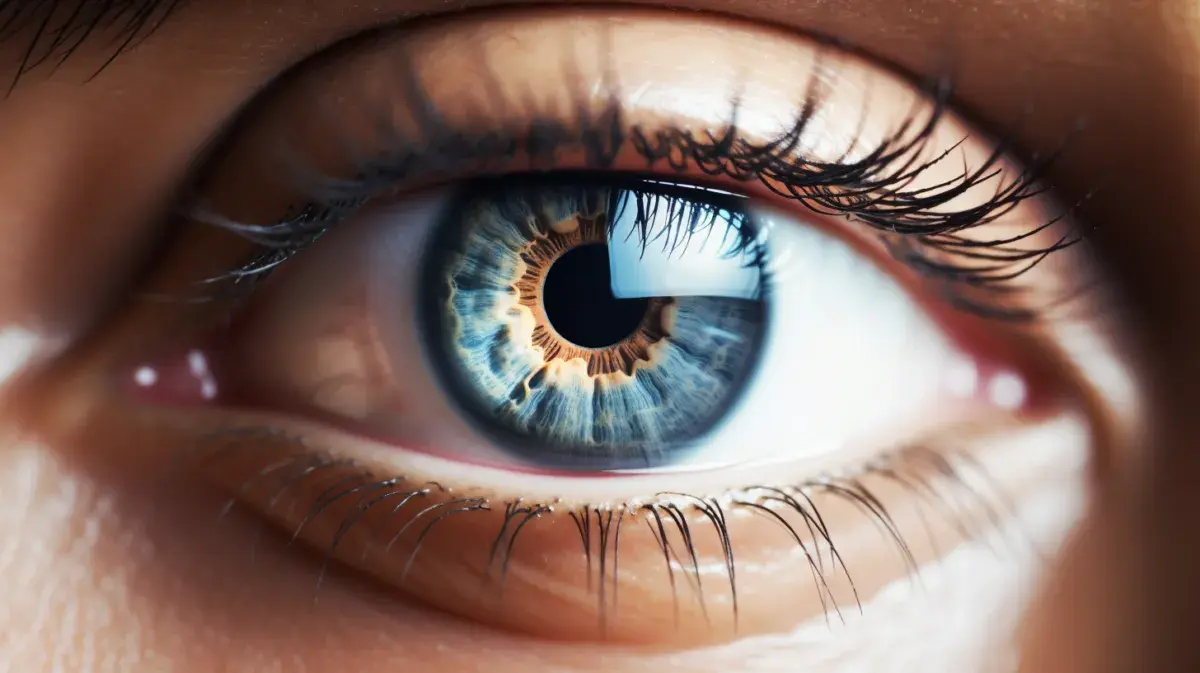
Presbyopia: The Loss of Near Vision
Presbyopia occurs when the lens inside the eye gradually loses its flexibility. This reduced focusing power makes it harder to focus on close objects. Most people may notice difficulty reading fine print, holding items at arm’s length, or experiencing eye strain with other close-up tasks.
Unlike nearsightedness or farsightedness, presbyopia is not a disease but rather a normal change of aging. It often begins around age 40 and becomes more noticeable in the 50s.
Solutions to correct presbyopia include:
- Reading glasses or prescription glasses for close work
- Progressive lenses or multifocal lenses that eliminate the visible line of bifocals
- Multifocal contact lenses for those who prefer not to wear spectacles
- Refractive lens exchange (RLE) or monovision LASIK, where one eye is corrected for near vision and the other for distance vision
These options can restore normal reading distance and reduce dependency on glasses.
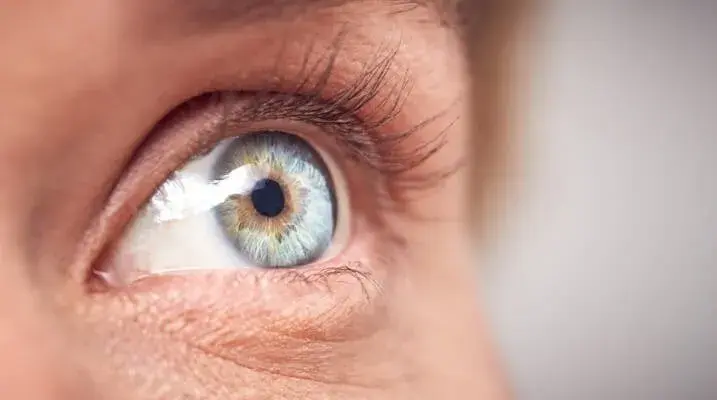
Reduced Tear Production and Dry Eyes
As we age, reduced tear production becomes more common, leading to fluctuating vision, irritation, and blurry vision. Dry eyes are one of the most common eye and vision problems affecting adults over 40.
- Symptoms include burning, grittiness, and sensitivity to dim lighting or more glare when driving at night.
- Treatments include artificial tears, warm compresses, omega-3 supplements, and, in some cases, prescription medications to stimulate tear production.
Managing dryness is vital not only for comfort but also for preserving the clarity of visual images.
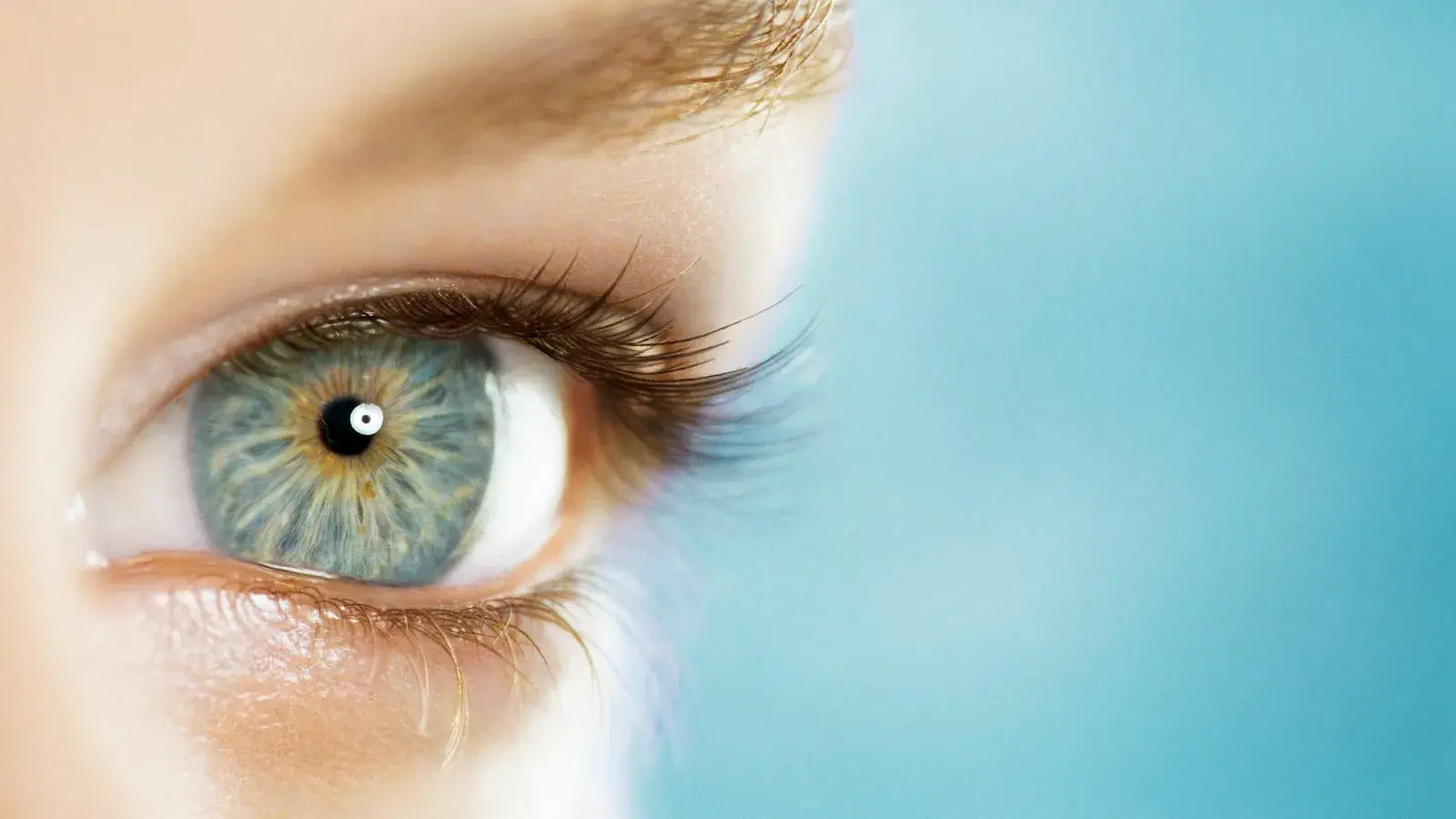
Cataracts and Age-Related Lens Changes
Another common age-related eye problem is cataract formation. A cataract occurs when the eye’s lens becomes cloudy, causing blurred vision, faded colors, and increased sensitivity to brighter lights or night vision glare.
The process is gradual, but cataracts are one of the leading causes of vision loss worldwide. The risk is higher if you have a family history, smoke, or spend long hours in the sun without protection.
The good news is that cataracts are treatable. Cataract surgery involves replacing the cloudy lens with an advanced intraocular lens (IOL), which can restore clear visual images, improve distance vision, and, in many cases, reduce reliance on prescription glasses.
Changes in Night Vision and Contrast Sensitivity
As people age, many develop difficulty with night vision. This can manifest as problems driving in dim lighting, discomfort with increased glare from headlights, or a need for brighter lights for reading.
Reduced contrast sensitivity also makes it harder to distinguish details in visual images or reading materials, especially when using screens or in low-light environments.
Anti-reflective progressive lenses or multifocal lenses can sometimes help, but in many cases, lifestyle adjustments such as avoiding night driving, using stronger lighting, and having an eye exam to rule out other conditions are necessary.
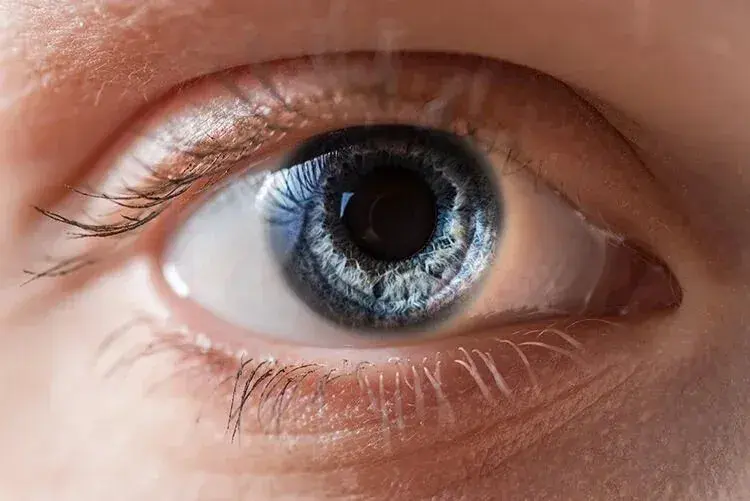
Eye Diseases That Become More Common After 40
Once you pass age 40, the likelihood of developing serious eye diseases increases. Many of these conditions cause no pain or early signs, making early diagnosis through regular eye exams critical.
- Glaucoma: Damage to the optic nerve is often linked to high eye pressure. Untreated, it can lead to permanent vision loss.
- Macular degeneration: Affects central vision, making it harder to recognize faces or read fine text.
- Diabetic retinopathy: A complication of diabetes that damages blood vessels in the retina.
Other medical conditions, like high blood pressure, also increase the risk of eye diseases. That’s why scheduling annual check-ups with an eye doctor is one of the most effective ways to maintain good vision as you age.
What You Can Do to Maintain Good Vision After 40
Two sections here are best presented in bullet points for clarity.
Essential Steps to Keep Eyes Healthy
- Get regular eye exams: Detect early signs of conditions such as presbyopia, cataracts, or glaucoma before they progress.
- Use the right visual aids: From reading glasses to multifocal contact lenses, choose the option that best suits your lifestyle.
- Protect against UV light: Always wear UV-blocking sunglasses outdoors to reduce the risk of cataracts and age-related eye problems.
- Manage dry eyes: Lubricating drops and screen breaks reduce strain and improve comfort.
- Maintain a diet rich in nutrients: Omega-3 fatty acids, vitamins A, C, and E, and antioxidants help keep your eyes healthy.
- Exercise regularly: This promotes circulation and lowers risk factors associated with vision loss.
Lifestyle Adjustments That Make a Difference
- Position reading materials at a normal reading distance (around arm’s length) to reduce eye strain.
- Use more light when working on close-up objects or in dim lighting, as the eye becomes less flexible with age and has a reduced ability to focus.
- Limit screen time and follow the 20-20-20 rule: every 20 minutes, look at something 20 feet away for 20 seconds.
- Control medical conditions like diabetes and high blood pressure that can impact long-term eye health.
- Pay attention to any fluctuating vision or sudden changes in clarity and seek immediate care from an eye doctor.
Conclusion
While age-related vision changes are a normal part of aging, they do not necessarily mean inevitable vision loss. Many people experience premature presbyopia, where the eye becomes less flexible earlier than expected, making it harder to focus on close-up objects before the age of 40. Understanding these changes gives you the power to act early.
With regular eye exams, the right lenses or surgical solutions, and lifestyle choices like using more light and maintaining a diet rich in nutrients, you can significantly improve your ability to see clearly.
